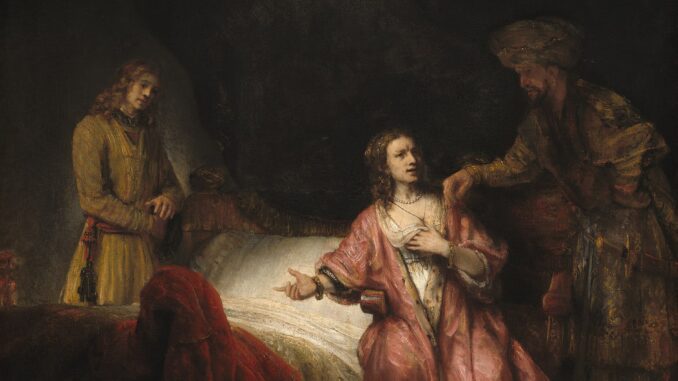
We read that Joseph bore himself so congenially, and did his work so well, and was so capable, so true, so trustworthy — that Potiphar “left all that he owned under Joseph’s care; he did not concern himself with anything except the food he ate.” Genesis 39:6. Joseph would never have won such a success — if he had given up to discouragement, if he had brooded over his wrongs, if he had sulked and complained, if he had spent his time in vain regrets or in vindictive feelings. We should learn the lesson, and it is worth learning — for it is life’s highest and best lesson.
The problem of life, is to keep the heart warm and kindly — amid all injustice and wrong; to keep the spirit brave and cheerful — in the midst of all that is hard in life’s circumstances and conditions; to be true, and right, and strong — in all moral purpose and deed, however others may act toward us.
Our inner life should not be affected by our external experiences. Right is right, no matter what others around us may do. We must be true — no matter if all the world is false — even false to us. We must be unselfish and loving — though even our nearest friends prove selfish and cruel to us. We must keep our spirit strong, cheerful and hopeful — though adversities and misfortunes seem to leave us nothing of the fruit of all our labors.
In a word, we are to live victoriously, truly, nobly, sweetly, cheerfully, joyfully — in spite of whatever may be uncongenial in our condition.
This is the lesson of all Christian life. We should not let the outside darkness into our soul. We should seek to be delivered from all morbidness and all unwholesomeness. We should not allow anything to crush us.
Remember, your task in living — is to keep sweet, to keep your heart gentle, brave, strong, loving, full of hope — under the worst that the years can bring you of injustice, hardship, suffering, and trial.J.R. Miller was a pastor and former editorial superintendent of the Presbyterian Board of Publication from 1880 to 1911. His works are now in the public domain.



